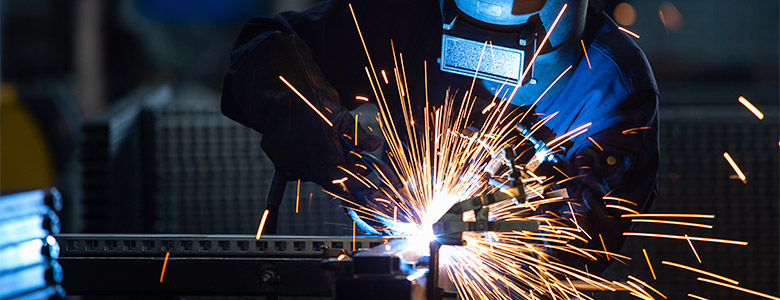Manufacturing may seem like it's being taken over by robots, but the truth is human expertise is still crucial. Automation has its place (and we’ve looked at some growing careers in the automation realm here), but it can’t replace the nuanced decision-making and hands-on skills that define many manufacturing roles.
Whether you're an aspiring engineer, a career changer, or a recent STEM graduate, exciting opportunities are awaiting you in the manufacturing sector.
In this article, our recruiting experts explore six in-demand manufacturing careers that offer promising job outlooks, attractive salaries, and the satisfaction of creating tangible products.
Read on to find out which career path might be perfect for you!
1. Machinist
Machinists and tool and die makers are the backbone of the manufacturing world. They operate machine tools to create precision parts and instruments. The role requires a keen eye for detail, technical skills, and a strong understanding of materials and processes.
Expect to work both at a manufacturing plant, factory, or worksite and within an office setting, meeting with clients and reporting on progress updates.
-
Job Growth Outlook: According to the Bureau of Labor Statistics (BLS), employment for machinists is projected to grow by 3% from 2022 to 2032. This steady demand is driven by the need for machine maintenance and the production of complex parts, especially in sectors like aerospace and automotive.
Tip: Investing time in learning computer numerical control (CNC) machining can significantly boost your employability and earning potential.

2. Machine Operator
Machine operators are responsible for setting up, operating, and maintaining various types of machinery used in manufacturing. They ensure that machines function smoothly and produce high-quality products.
They work closely with safety inspectors to ensure machines are performing correctly and are often the team members who know the most about the equipment's internal nature.
-
Job Growth Outlook: The BLS projects a 7% growth in machine operator jobs from 2021 to 2031, reflecting the ongoing need for skilled operators in diverse industries such as plastics, textiles, and metals.
Tip: Familiarize yourself with different types of machinery and safety protocols to enhance your versatility and job prospects.
3. Manufacturing Supervisor
Manufacturing supervisors oversee the production process and manage teams of workers. They ensure that production schedules are met, quality standards are maintained, and safety regulations are followed.
Supervisor roles require strong communication and people skills and should be especially cognizant of product quality standards as they are responsible for the final product before it reaches other departments or consumers.
Tip: Consider taking courses in management and leadership to prepare for supervisory responsibilities and advance your career.

4. Millwright
Millwrights install, maintain, and repair machinery, heavy equipment, and advanced systems used in manufacturing. Their work involves reading blueprints, using hand tools, and performing precision alignments.
Millwrights often collaborate with mechanics and safety personnel to calibrate machinery and conduct diagnostic tests. This teamwork is essential for ensuring that the equipment operates safely for all users while maintaining optimal performance daily.
Tip: Hands-on experience through apprenticeships or contract work can provide invaluable skills and open doors to lucrative job opportunities.
5. Welder
Welders join metal parts together using various welding techniques. Their work is critical in industries ranging from construction and shipbuilding to automotive and aerospace. Their skill set allows them to repair imperfections in a wide range of metal materials by applying heat to join or fuse different metal pieces seamlessly.
Welders have the flexibility to work as independent contractors or as part of a production line within a company. They can specialize in various areas, including piping, tool fabrication, or even artisanal crafts like swords and axes.
Tip: Obtaining certifications from recognized bodies such as the American Welding Society (AWS) can enhance your credentials and job prospects.

6. Ironworker
Ironworkers play a crucial role in constructing and repairing buildings, bridges, and other structures. They work with steel and iron to create frameworks and ensure the structural integrity of projects.
Similar to welders, ironworkers possess the skills to interpret blueprints and shape metal pieces for larger projects. They often collaborate with other construction team members, operating machinery and positioning substantial steel structures at construction and welding sites.
Tip: Physical fitness and a solid understanding of building codes and safety practices are essential for success in this field.
Discover Your Manufacturing Career With One Tech
The manufacturing industry continues to offer a wide range of rewarding careers that rely on human skills and expertise. Whether you're passionate about creating precision parts, overseeing production, or constructing major structures, there's a role for you in this dynamic field!
Ready to take the next step in your manufacturing career? One Tech Staffing is here to help you find the perfect job that matches your skills and aspirations.
Regardless of whether you're seeking a temporary or permanent position in manufacturing, our recruiting experts are here to assist you in discovering the ideal job and employer.
Send us your resume to get started, or check out our job board to see positions you might be interested in!